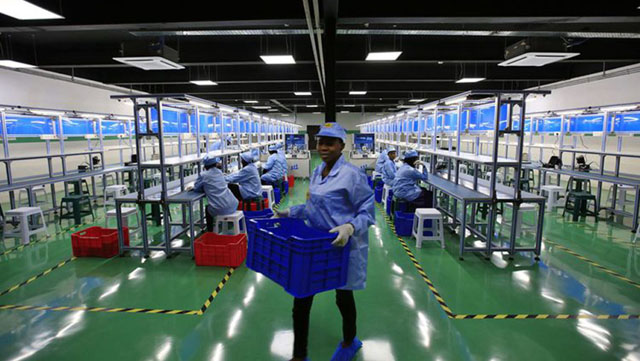
Manufacturers, Others Spend N119bn On Self-generated Electricity
Members of the Organized Private Sector in Nigeria (OPSN) have kicked against the suspension of the proposed hike in electricity tariff stating that any increase in tariff will reinforce the already high cost of doing business for the Private Sector and further depress productivity in the manufacturing sector.
Precisely, the operators stated that while electricity outages average about 10 hours per day, electricity expenses still constitute about 40% of the total cost of production and the average cost of self-generated electricity averages N119 billion in 2019.
The OPSN, comprising of the Manufacturers Association of Nigeria (MAN), Nigerian Association of Chambers of Commerce, Industry, Mines and Agriculture (NACCIMA), Nigeria Employers Consultative Association (NECA), Nigerian Association of Small and Medium Enterprises and the Nigerian Association of Small Scale Industries (NASSI), stated that the unfriendly operating environment is responsible for the oscillatory performance of the real sector in the past few years.
They noted that though Order No: NERC/198/2020 specifically states that “there shall be no increase in tariffs of the end-use customers on April 1, 2020”, the recently concluded nationwide stakeholders’ engagements and the just concluded review panel sessions with the 11 DisCos alluded to the fact that there could still be an increase in electricity tariff this year.
They added: “For the records, private business operators in Nigeria, especially the manufacturing sector are already plagued by high cost operating environment arising from poor regulatory environment, macroeconomic asymmetries and high cost of energy.
“Most worrisome is the fact that operators in the Private Sector, especially the manufacturing sector bear the burden of commercial and technical losses through very high monthly electricity bill that is largely estimated.
“The OPSN has observed that despite numerous increases in electricity tariff, poor generation and transmission plague the sector. Likewise, inefficient distribution and inadequate supply remain crucial challenges facing private sector operators, particularly those in manufacturing. It is therefore important that any upward electricity tariff that will add up to the already bloated cost of production in the sector should be avoided.
“One would believe that before embarking on this outrageous increase in electricity tariff, its impact on the manufacturing sector and the economy at large would have been properly evaluated to mitigate a crowding-out effect on the economy”.
The operators then urged the Federal Government to unveil a more realistic tariff structure that will support the growth of the sector is very critical at the moment, while a review of the privatization/unbundling of the electricity industry should be revisited, in the best interest of Nigerians.
“A component assumption of the MYTO methodology is that electricity generation, transmission and distribution will improve in the process, leading to improved supply of electricity to customers. For that reason, various projections for generation capacities for different years were made.
“For instance, 5,500MW was projected for 2012; 7,500MW for 2013; 9,061MW for 2014; 10,071MW for 2015 and 10,571MW for 2016. Also, energy to be sent out to grid was projected at 30,715GW for2012; 41,884GW for2013; 50,601 GW for 2014; 56,242 GW for 2015; and 59,034 GW for 2016.
“The pertinent questions are, therefore; Wouldn’t they have been accomplished? Wouldn’t it better to think more about how to improve generation capacity hence transmission and distribution rather than squeezing the mere 4000MW to meet all revenue needs of key sharing stakeholders?
“OPSN believes that fixing the sector is not rocket science, basic requirements are pragmatic processes; pro-electricity policies; and significant investments to improve transmission and distribution infrastructure, increase the generation capacity and other capacities that will usher in scale production in the sector”, they added.
The proposed increase in electricity is not business-friendly, and will have a catastrophic impact on the real sector; spell doom for the small and medium companies; and further inflict misery on the citizenry. Therefore, the proposed tariff increase should be suspended in the best interest of the Nigerian economy.
